From trepanation to sewing garlic: ancient ways to treat migraines that make you feel uncomfortable
Categories: Europe | Health and Medicine | History | World
By Pictolic https://pictolic.com/article/from-trepanation-to-sewing-garlic-ancient-ways-to-treat-migraines-that-make-you-feel-uncomfortable.htmlEveryone who has experienced migraine attacks knows well that this condition is different from a normal headache. This is a whole complex of unpleasant symptoms that can poison the life of anyone.
Now, when there are special medications, it is not difficult to stop a migraine attack. But in the old days, to get rid of this disease, they used barbaric and useless methods.

Medieval ideas about human physiology were very exotic. It was believed that the body is controlled by four types of fluid, which are in a delicate balance. Any violation of this balance caused diseases and migraines were one of them.
Until the middle of the XVIII century, bloodletting was the main way to bring internal fluids into balance. A painful and prolonged headache, accompanied by nausea, was one of the many indications for this procedure.
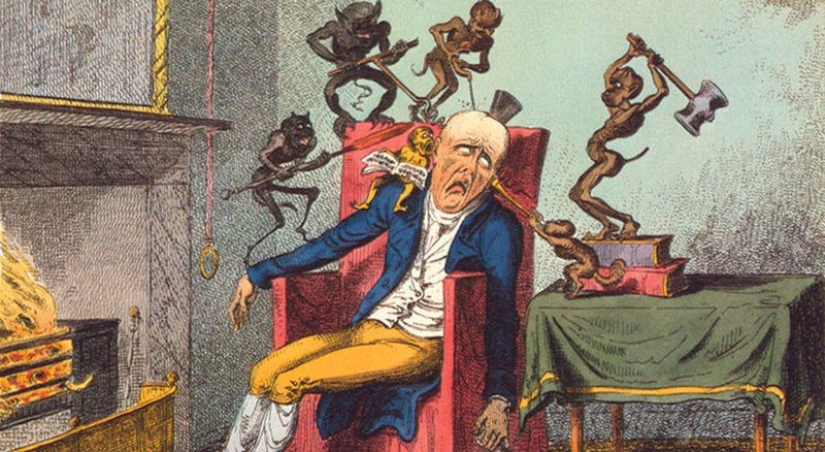
This is how caricaturists represented migraines at the beginning of the XIX century
This was until 1770, when the Swedish doctor Samuel Auguste Tissot determined that migraine is a separate disease and did not offer to treat it in addition to bloodletting with medicines from the leaves of the orange tree and valerian, frequent baths and a diet specially developed by him.
Trepanation of the skull is one of the first surgical operations mastered by man. Even the ancient Egyptians used it to treat various injuries and painful conditions. The Dutch physician Petrus Forestus was the first to suggest treating migraines with trepanation in the XVI century, who performed the first operation on a patient with an incurable severe form of this disease.
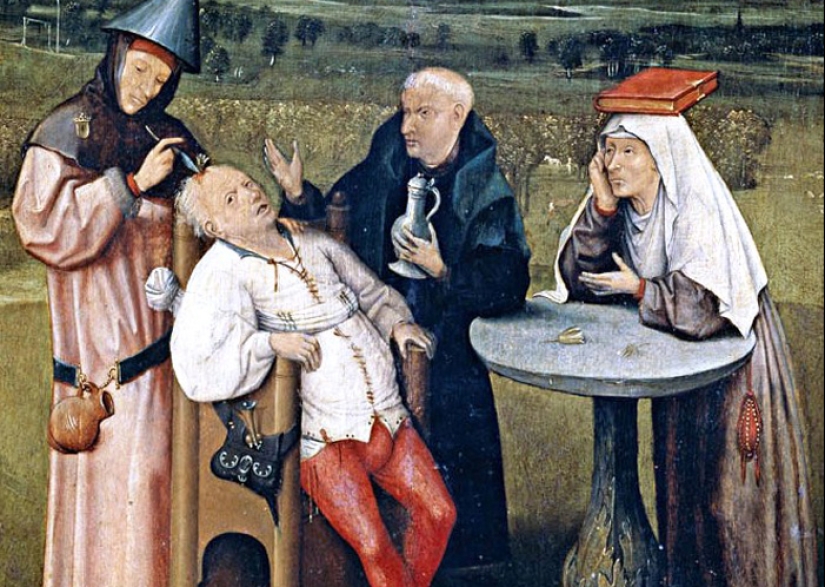
Trepanation of the skull in the Middle Ages
Forestus drilled a hole in the patient's skull, through which he managed to take a sample of the patient's brain matter. After examining the resulting tissue, the surgeon said that the cause of the ailment lies in the "black worm" that affects the brain of a migraine patient.
In 2010, this documented case was investigated by neurologist Peter J. Koehler, who suggested that Forestus took the darkening of the tissues for a" black worm". This phenomenon could be caused by a chronic subdural hematoma, which is an accumulation of blood between the brain membrane and its surface. This was most likely the cause of the patient's terrible headaches.
The Arab physician and scientist Abul-Qasim Khalaf ibn Abbas al-Zahrawi, or as the Europeans called him Albucasis, lived in Andalusia, in the territory of modern Spain, in the XI century. Thanks to his knowledge and skills, this Arab became known throughout the Arab world and even received the honor of becoming the personal physician of the Caliph of Cordoba.
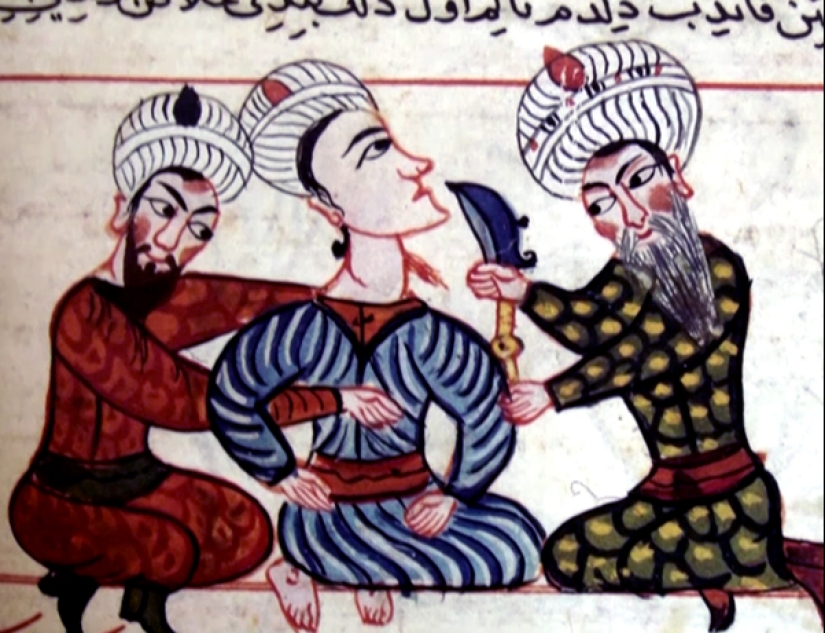
Medieval Arab Surgeon
One of the inventions of Albucasis was a method of treating migraines using garlic. The procedure began with the fact that the patient was made deep incisions on the temples with a scalpel. Garlic cloves were placed in the formed cavities, after which the wounds were bandaged and waited for 15 hours.
After that, the garlic was extracted, and the wounds were rubbed with oil for several days. The ultimate goal was the suppuration of wounds, after which the doctor cauterized the wounds with a red-hot iron and sent the patient home. It was believed that in this way there is a complete cure of migraines. It is difficult to imagine the patient's torment during such treatment. It is not surprising that after that he was afraid to even mention another attack of his illness.
Before the healing properties of bloodletting and garlic were discovered, people were forced to mock migraine patients in other accessible ways. A court physician of the Roman Emperor Claudius named Scribonius Larg drew attention to marble electric rays that can generate electric discharges.

Ocular electric stingray
This was the beginning of a new era in therapy, as for many centuries, first Scribonius himself, and then his students, treated migraines, renal colic, gout, and even rectal prolapse and enuresis with electric shocks from stingrays. Until the XVIII century, marble stingrays were used, but then someone discovered an electric eel in the rivers of South America, whose discharge, and therefore the healing effect, were stronger.
The treatment looked ridiculous, as the patient was forced to touch his head with one hand, and the other was lowered into a container with live fish. The following discharges helped to get rid of the damn migraine in one session. It is quite clear that the therapeutic effect of the treatment with electricity was akin to that obtained from the introduction of garlic under the scalp.
Another torture for a migraine sufferer was called capping. Such treatment consisted in installing hot glass vessels on the patient's body. The effect of cupping therapy was akin to the results of bloodletting — it was believed that the jar draws excess fluid from the body, restoring optimal balance.
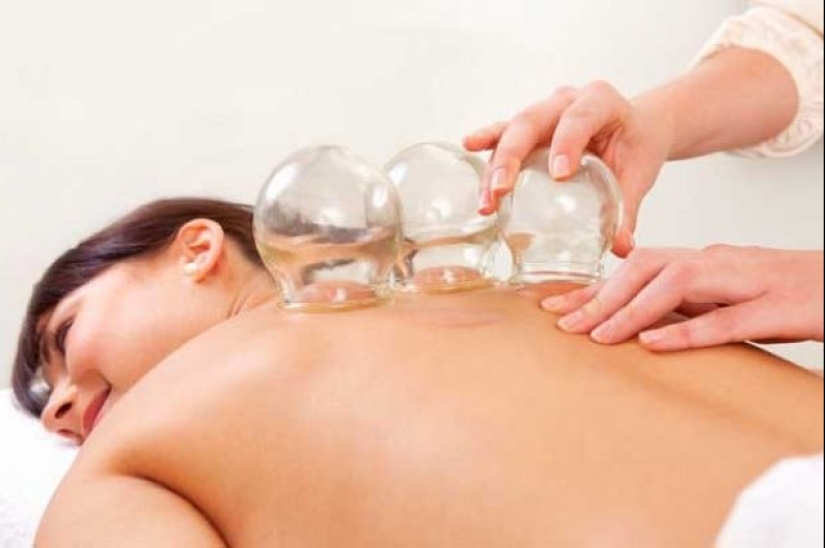
Capping is still used today, but it is no longer against migraines
The main popularizer of this method of treatment was the mayor of Amsterdam, Nicholas Tulp, who was also a doctor. The official claimed that he managed to cure a woman with capping, who was not helped by other methods of therapy.
The blisters left after removing the hot cans were smeared with cantharidin to enhance the therapeutic effect. This caustic substance produced by abscess beetles, with excessive zeal of the doctor, was absorbed through the skin in too large quantities, causing general poisoning of the body.
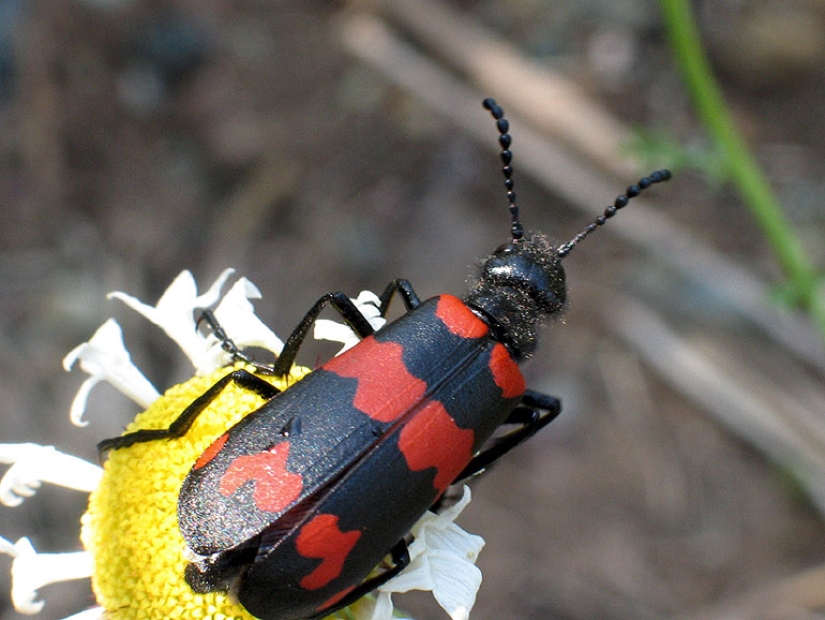
The abscess beetle
Among the symptoms caused by the secret of beetles, it is worth noting painful urination, vomiting, kidney dysfunction and, sometimes, fatal multiple organ failure. The survivors of the particularly diligent cupping did not admit in any way that they continue to suffer from migraines.
One of the most harmless methods of dealing with migraines in In the Middle Ages, there was a method proposed by the Arab ophthalmologist Ali ibn Isa al-Kahal. This scientist became famous for his work "Notes of an eye doctor", in which he described 130 eye diseases and methods of their treatment.
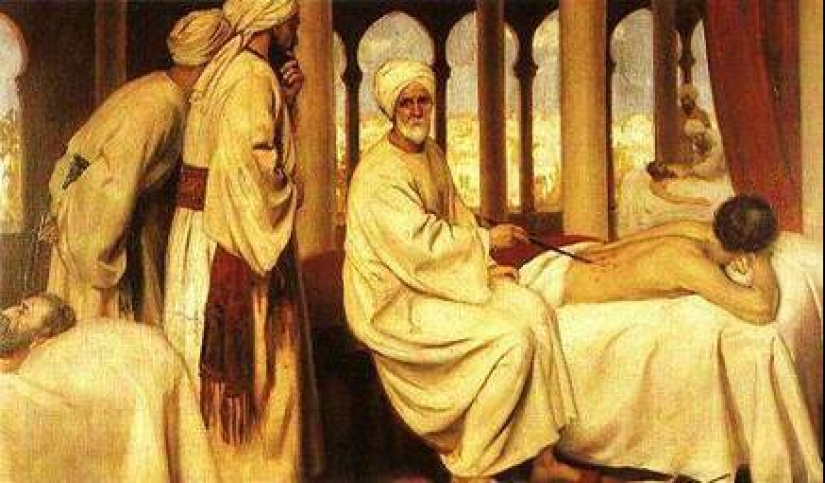
Arab healers in The Middle Ages were considered the most artful
Neurology was nothing more than a hobby of the great ophthalmologist, but he also reached certain heights in it. Al-Kahalem recommended treating migraines with compresses made from dried moths, which were supposed to be tied with a cloth to the head. The history is silent about the effectiveness of this therapy. Perhaps the patient spoke about relief out of respect for the authority of the scientist or out of fear of becoming a victim of garlic manipulations, which were still practiced at that time.
Treatment with mineral waters is another useless, but at the same time painless way to treat migraine attacks. It came into fashion at the beginning of the XIX century and immediately received recognition all over the world. The most popular resorts in Europe were Marienbad and Karlovy Vary, where the infirm from different countries gathered. Water was used to treat anything, including "congestive headaches".
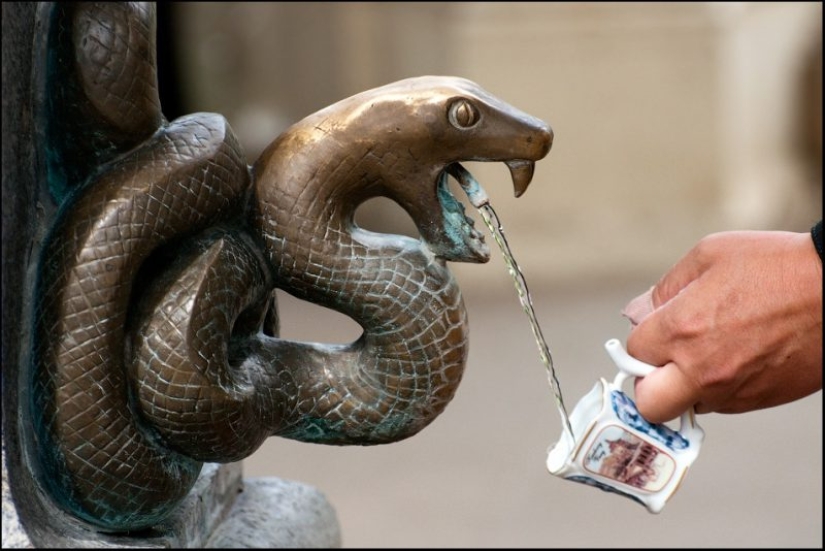
Mineral spring in the resort of Karlovy Vary
A little later, mud baths became a bestseller, with the help of which doctors tried to "pull excess blood" from the head and simultaneously calm the patient's nervous system.
Such instructions were given to patients by a medic of the Prussian Army, Apolinary Viktor Yagelsky, in 1873. It is not difficult to notice the progress of medicine in the treatment of migraines. Yagelsky's recommendations were the first to have at least some scientific justification. It was impossible to cure a migraine with mud, but it was possible to distract from the exhausting headaches and get temporary relief.
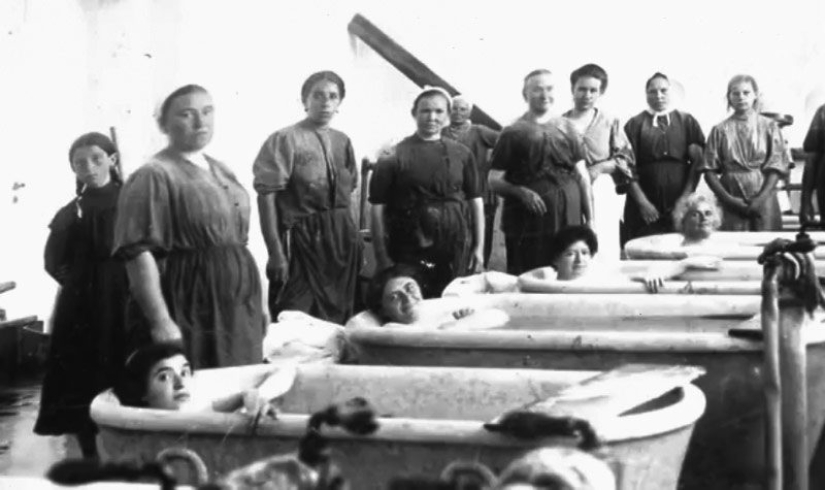
Mud treatment. Photos of the end of the XIX century
Barbaric methods gradually fell out of use and were replaced by more scientific and progressive ones. Already in the enlightened XIX century, there were many exotic medical devices, some of which are documented by photographers.
Keywords: Arabs | Head | Medicine | Treatment | Doctors | Procedure
Post News ArticleRecent articles

It's high time to admit that this whole hipster idea has gone too far. The concept has become so popular that even restaurants have ...

There is a perception that people only use 10% of their brain potential. But the heroes of our review, apparently, found a way to ...
Related articles

After defeating the median king Arphaxad, the Assyrian king Nebuchadnezzar, who ruled in Nineveh, sent his captain Holofernes to ...

This branch of medicine as transplantation, there are more than a hundred years. Over this time there have been many successful and ...

In addition to decent women and prostitutes, for many centuries there was a third, special kind of ladies-courtesans. In Europe, ...

New Year's is a time to surprise and delight loved ones not only with gifts but also with a unique presentation of the holiday ...